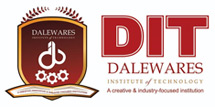Mass Communication
Home / Mass Communication
The National Diploma (ND) in Mass Communication
At the School of Media and Communication, we aspire to be the hub of learning in media and communication on the African continent. Here, creativity meets enterprise and theory meets practice.

The National Diploma (ND) in Mass Communication
GOAL AND OBJECTIVES
PROGRAMME GOAL:
The National Diploma (ND) in Mass Communication is meant to give the students technological education and professional skills necessary for employment and job creation in various areas of mass communication industry, such as newspapers, magazines, radio, television, film/video, new media, public relations, advertising, news agency, government and corporate information services.
PROGRAMME OBJECTIVES
On completion of this course, the diplomats will be able to carry out the following functions:
- Gather, investigate and report news for the print, broadcast and online media
- elect, edit and prepare for publication, news items, features, photographic graphics and multimedia materials and results of investigations for print and
- Produce, present and direct programmes for the electronic media
- Produce, present, and direct programmes
- Plan, prepare and produce materials for public relations and advertising purposes.
- Know various outlets/contacts for commercial utilization of feature and magazine articles
- Identify outlets for publishing of features and magazine articles.
- Know how to negotiate terms for publishing articles.
- Understand rights of the article author.
MINIMUM ENTRY REQUIREMENTS
The academic requirements for admission into the programme are:
Five (5) G.C.E. (0 level) , WASC,NECO or NABTEB subjects passed at not more than two sittings. The subjects must be passed at Credit level and should include English Language, Literature in English, and any two others Mathematics is also required.
PROJECT
Every ND student is required to complete successfully on original practical project in any area of Mass Communication during his/her final year on the programme in order to qualify for the award of the diploma.
CURRICULUM
The curriculum consists of four main components. These are:
- General Studies
- Foundation Courses
- Professional Courses
- Supervised Industrial Work Experience Scheme (SIWES)
The General Studies component shall include courses in:- Arts and Humanities: English Language, indigenous language and foreign language History.
Social Sciences; Citizenship (the Nigerian constitution), Political Science, Sociology, Philosophy and Geography Citizenship, Education and Entrepreneurship, are compulsory.
The general Studies component shall account for not more than 10-15% of total contact hours for the programme.
Foundation courses include courses in English, Languages, Basic Computer Applications. The number of hours will account for about 1015% of the total contact hours.
Professional Courses are the core Mass communication Courses which give the student the theory and practical skills needed to practice in Mass Communication. These may account for between 60-70% of the contact hours.
Students Industrial Work Experience Scheme(SIWES) shall be taken during the long vacation following the end of the second semester of the first year.
CURRICULUM STRUCTURE OF ND PROGRAMME
The structure of the ND programme consists of four semesters of classroom, Laboratory and Studio activities in the institution and a semester (3 – 4 months) of Supervised Industrial Work Experience Scheme (SIWES), Each semester shall be of 17 weeks duration made up as follows: 15 contact weeks of teaching, i.e. Lecture, Recitation and Practical Exercise tests, quizzes, etc and 2 weeks for examination and registration. SIWES shall take place at the end of the second semester of the first year.
ACCREDITATION
The National Diploma (ND) in Mass Communication shall be accredited by NBTE before the diplomates can be awarded the diploma certificate. Details about the process of accrediting a programme for the award of the ND are available from the Executive Secretary, Programme Department, NBTE Plot „B‟, Bida Road, P.M.B. 2239, Kaduna, Nigeria.
CONDITIONS FOR THE AWARD OF THE DIPLOMA
Institutions offering accredited programmes should award the National Diploma/ Higher National Diploma to candidates who have successfully completed the programme after passing prescribed course work, examinations, diploma project and the supervised industrial work experience. Such candidates should have completed a minimum of between 72 and 80 semester credit units.
The Diplomas shall be classified as follows:
Distinction – GPA of 3.50 and above
Upper Credit – GPA of 3.00 – 3.49
Lower Credit – GPA of 2.50 – 2.99
Pass – GPA of 2.00 – 2.49
Fail – GPA of below 2.00
